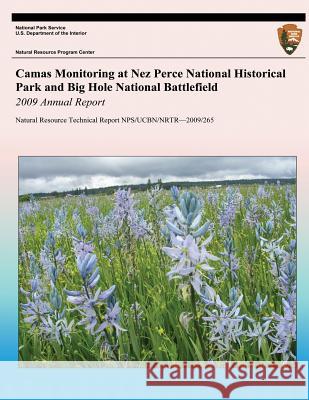Camas Monitoring at Nez Perce National Historical Park and Big Hole National Battlefield: 2009 Annual Report: Natural Resource Technical Report NPS/UC » książka
Camas Monitoring at Nez Perce National Historical Park and Big Hole National Battlefield: 2009 Annual Report: Natural Resource Technical Report NPS/UC
ISBN-13: 9781492754060 / Angielski / Miękka / 2013 / 36 str.
Camas Monitoring at Nez Perce National Historical Park and Big Hole National Battlefield: 2009 Annual Report: Natural Resource Technical Report NPS/UC
ISBN-13: 9781492754060 / Angielski / Miękka / 2013 / 36 str.
(netto: 48,88 VAT: 5%)
Najniższa cena z 30 dni: 50,90
ok. 16-18 dni roboczych.
Darmowa dostawa!
As part of the Upper Columbia Basin Network's effort to conduct vital signs monitoring, we completed monitoring of camas (Camassia quamash) in Big Hole National Battlefield (BIHO) and Nez Perce National Historical Park (NEPE). Camas is a unique resource for these parks because it is both culturally and ecologically significant. Camas was and remains one of the most widely utilized indigenous foods in the Pacific Northwest and it is strongly associated with the wet prairie ecosystems of the region that have been degraded or lost due to historic land use practices. A long-term citizen science-based monitoring program for detecting status and trends in camas populations at BIHO and Weippe Prairie, a unit of NEPE, serves as a central information source for park adaptive management decision making and will provide essential feedback on any eventual restoration efforts of park wet prairie habitats. The involvement of student citizen scientists in this particular program has been effective both in terms of leveraging resources as well as in engaging communities in park stewardship and science education. This annual report details the status and trend estimates obtained from the first five years of monitoring, 2005-2009, at Weippe Prairie and BIHO.
Zawartość książki może nie spełniać oczekiwań – reklamacje nie obejmują treści, która mogła nie być redakcyjnie ani merytorycznie opracowana.











